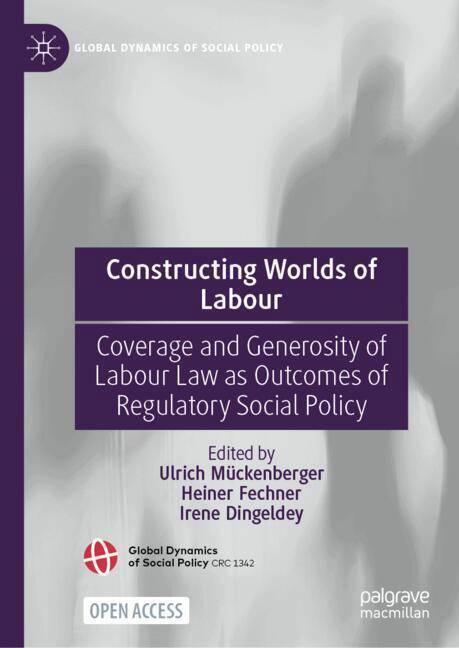
- Retrait gratuit dans votre magasin Club
- 7.000.000 titres dans notre catalogue
- Payer en toute sécurité
- Toujours un magasin près de chez vous
- Retrait gratuit dans votre magasin Club
- 7.000.0000 titres dans notre catalogue
- Payer en toute sécurité
- Toujours un magasin près de chez vous
Constructing Worlds of Labour
Coverage and Generosity of Labour Law as Outcomes of Regulatory Social Policy
Description
This open access book simultaneously addresses both the segmenting and the egalitarian function of individual labour law, in almost all countries of the world, in some chapters following up from its origin to the present. Its socio-legal approach fills gaps for sociological, legal and historical research of regulatory social policy. Labour law is dealt with both in qualitative (theoretical, hermeneutic and historical) and in quantitative manner (with the leximetrics method developing new ways to measure generosity and coverage of law). This is a groundbreaking contribution to regulatory social policy research. By indicating the relevance and the mechanisms of legal segmentation for labour market segmentation, unequal opportunities and social stratification it provides evidence for the assumptions that social segmentation does not only stem from market forces, but also from the law itself. Even the rising impact of egalitarian law cannot fully cope with legal segmentation. The book chapters place particular emphasis on the development in countries of the Global South.
Spécifications
Parties prenantes
- Editeur:
Contenu
- Nombre de pages :
- 376
- Langue:
- Anglais
- Collection :
Caractéristiques
- EAN:
- 9783031824104
- Date de parution :
- 09-05-25
- Format:
- Livre relié
- Format numérique:
- Genaaid
- Dimensions :
- 148 mm x 210 mm

Les avis
Nous publions uniquement les avis qui respectent les conditions requises. Consultez nos conditions pour les avis.





